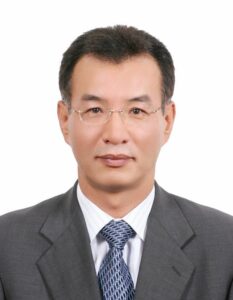The Voice of Mr Juwan Kang of the Korea LPG Association
The Voice talked to Mr Kang, Vice President of the Korea LPG Association, for his thoughts on the Korean LPG Market and also the upcoming WLPGA Autogas Summit which will take place in Seoul in January 2015.
 The Voice: Please tell us a little about your role within the KLPGA and what career path brought you here?
The Voice: Please tell us a little about your role within the KLPGA and what career path brought you here?
Mr Juwan Kang: I'm responsible for the technical development and government relations, as a vice-president of KLPGA. I'm majored in chemical engineering in university and I have over 30 years experience in LPG industry, especially focusing on Autogas during last 14 years. I played a leading role in promoting various LPG applications, ranged from mobile heaters, gas boilers to LPG buses when I worked in SK Gas corporation. I have recently led many R&D projects for the development of LPG Direct Injection system and diesel-LPG fuel mixing systems.
TV: What are the main activities of the KLPGA?
JK: Korea LPG Association aims to encourage the use of clean LPG and improve the environment. The association works at the forefront of supporting and inspiring the industry to overcome challenges and generate greater developments. Our association has made efforts by securing supportive policies, enhancing the networking with experts and promoting various publicity activities. We are also endeavoring to develop LPG technology in cooperation with car manufacturers.
TV: The Korean Autogas market is a success story, what do you think the future holds?
JK: The growth of Korean Autogas market is attributable to many years of highly supportive government policies, mainly through a large fuel tax advantage and support for the LPG use in taxis. However, we are lately facing many obstacles in Korea's Autogas market. Although, we believe that obstacles should not be an issue when we have a strong will to resolve problems we are facing. In this respect, we are trying to work towards a steady growth of the Autogas market and expand the use of LPG through our continuous efforts. In the world, rising LPG supplies from shale gas may create opportunities beyond traditional markets. LPG, as an alternative fuel, will also play a significant role in compliance with the security of energy supply, improvement of air quality and mitigation of climate change.
TV: Are there any immediate threats to the market
JK: Korean LPG industry is facing challenges caused by competition with taxi fuels. In Korea, around 95% of the country's taxis run on Autogas, accounting for an estimated 40% of total Autogas consumption. Until now, the government has encouraged taxis to use LPG fuel for the environmental advantage, supporting the favourable taxation for Autogas. Unfortunately, the Korean government announced a change of policy with regard to taxis. As of September 2015, taxis will be allowed to use diesel cars that meet Euro-6 standards.
TV: The WLPGA Autogas Summit will be in Seoul in January, what are your main hopes for this important event?
JK: As you know, Korean Autogas market has grown through government's supports and the development of Autogas technology. To provide the additional information regarding the development of Autogas industry - as a solution for clean air - and to share successful cases for improving air quality by adopting Autogas, the WLPGA Autogas Summit will be held on January 28 to 29, 2015, in Seoul, Korea. Under the theme of "Autogas : Fuelling a Cleaner and Healthier Future", this summit will be consist of remarkable conference programmes and a exhibition. I hope that the industry will have an opportunity to think about the present and future of Autogas industry by participating this important meeting.